Keywords:
Spectacled bear, Human activity, Predation, Food source, ExtinctionAbstract
Anthropogenic activities have fragmented natural areas, reducing connectivity between the ecosystems, so that wild species are pressured to adapt to a new landscape and, therefore, look for resources in agricultural productions that are adjacent to their habitat, leading to conflicts between wildlife and producers. This conflict has been reported with large felines and the Andean bear (Tremarctus ornatus), the reason why it was proposed to determine the conflict of the Andean bear with anthropic activities, especially agriculture, and generate management strategies to reduce this conflict in Zetaquira, Colombia. For this purpose, 20 plots of land were searched in three villages in the municipality, using a signal interpretation matrix, a thematic interview, and a characterization of the distance from water sources and natural zones to the attack areas. Attacks
by the bear were found in 60% of the sampled properties, being the months from January to April, in the years investigated, in which 71.4% of the attacks were registered. Based on this information, a strategy was created, taking into account the context of Zetaquira, to reduce the conflict.
Downloads
References
BAIKER, J. 2011. Guía ecoturístico: Mancomunidad Saywite-Choquequirao-Ampay (Apurímac, Perú). Con especial referencia a la identificación de fauna, flora, hongos y líquenes en el departamento de Apurímac y sitios adyacentes en el departamento de Cusco. Serie Investigación y Sistematización Ecobona-Intercooperation. Nº 15.
CASTELLANOS, A. 2006. Cannibalism in Andean Bears? International Bear News 15(4): 20.
CASTELLANOS, A. 2010. Guía para la rehabilitación, liberación y seguimiento de osos andinos. Andean Bear Foundation. Ecuador 661:1-38.
CASTELLANOS, A., LAGUNA, A. & CLIFFORD, S. 2011. Suggestions for mitigating cattle depredation and resulting human-bear conflicts in Ecuador. International Bear News 20(3): 16-18.
CORPOBOYACÁ, CORPOGUAVIO, CAR, CORPOCHIVOR & CORPORINOQUÍA. 2016. Programa regional para la conservación y manejo del oso andino (Tramarctos ornatus) en la Cordillera Oriental. 57pp
CRAFT, M. E. (2008). Predicting disease dinamics in Africa lion populations. (Tesis Doctoral, University of Minnesota). Recuperado de: https://conservancy.umn.edu/handle/11299/46993
DEL MORAL, J.F. & BRACHO, A.E. 2009. Indicios indirectos de la presencia del oso andino (Tremarctos ornatus Cuvier, 1825) en el noroeste de Argentina. Rev. Mus. Argentino Cienc. Nat. 11: 69-76.
FIGUEROA, J. 2013. Revisión de la dieta del oso andino Tremarctos ornatus (Carnivora: Ursidae) en América del Sur y nuevos registros para el Perú. Revista del Museo Argentino de Ciencias Naturales 15: 1-27.
FIGUEROA, J. 2015. Interacciones humano-oso andino Tremarctos ornatus en el Perú: consumo de cultivos y depredación de ganado. Therya 6(1): 251-278.
FIGUEROA, J. & STUCCHI, M. 2005. Attack of the Andean bear to the cattle and farms in Perú. En: IBA (ed.), Abstracts: 16º International Conference on Bear Research and Management. International Bear Association. 96pp
FIGUEROA, J. & STUCCHI, M. 2013. Presencia del oso andino Tremarctos ornatus (Carnívora: Úrsida) en el Corredor de Conservación Vilca bamba-Amboró, sureste del Perú. Therya 4(5): 11-538.
FIGUEROA, J. & STUCCHI, M. 2015. Human-Andean bear Tremarctos ornatus interaction in Peru: consumption of crops and predation on livestock, Asociación para la Investigación y Conservación de la Biodiversidad (AICB) 277: 70-80.
FLORES, S., BUSTAMENTE, M., REMACHE G., GOLDSTEIN I. & CAMACHO J. 2005. El conflicto Oso Andino-Ganado: aplicación del modelo conceptual para la conservación de especies paisaje al caso de Oyacachi, Reserva Ecológico Cayambe-Coca. Reporte técnico. Ecociencia,Wildlife Conservation Society and the Nature Conservancy. 121pp.
GAITÁN, J. 2010. Predación de Ganado en ecosistemas altoandinos colombianos: estudio de caso en el suroccidente del departamento de Boyacá, Colombia. 98pp.
GARCÍA. S. 2011. Ecology and conservation of the Andean bear in Venezuela. Tesis de Doctorado, Universidad de Cambridge, Inglaterra, 337pp.
GOLDSTEIN, I., PAISLEY, S., WALLACE, R., JORGENSON, J.P., CUESTA, F. & CASTELLANOS, A. 2008. Andean bear-livestock conflicts: a review. Ursus17: 8-15.
GOU, L., YANG WANG, C., HOU, R., CHEN, S., YANG, X., LIU, J., PAN, H., HAO, Z., ZHANG, M., CAO, S. & YAN, Q. 2013. Phylogenetic analysis of the haemagglutinin gene of canine distemper virus strain detected from giant panda and raccoon dogs in China. Virology Journal 10(1): 109-114.
KATTAN, G. H., FRANCO, P., ROJAS, V. & MORALES, G. 2004. Biological diversification in a complex region: a spatial analysis of faunistic diversity and biogeography of the Andes of Colombia. Journal of Biogeography 31: 1829-1839.
LINNELL, J.D.C., SMITH, M.E., ODDEN, J., SWENSON, J.E. & KACZENSKY, P. 1996. Carnivores and sheep farming in Norway. Strategies for the reduction of carnivore-livestock-conflicts: a review. Oppdragsmelding 443: 1-118.
NARVÁEZ, G., & LEÓN, G. 2001. Caracterización y zonificación climática de la Región Andina. Meteorología Colombiana. Bogotá, D.C. – Colombia. R4:121-126.
NASSAR-MONTOYA & PEREIRA-BENGOA. 2013. Primatología del nuevo mundo: biología, medicina, manejo y conservación. Centro de primatología Araguatos. Bogotá. 291pp.
PERAZA. 2016. Veredas de Boyacá (shipe). Archivo para SIG.
PÉREZ-TORRES, J. 2001. Guía para la conservación del oso andino u oso de anteojos, Tremarctos ornatus (FG Cuvier, 1825) (No. 93). Convenio Andrés Bello.
POSADA, F., BARBOSA, C., GUTIÉRREZ, H. & YANINE, D. 1997. Mapa de coberturas vegetales, uso y ocupación del espacio en Colombia. Escala 1:1’500,000. Memoria explicativa. IDEAM. Santafé de Bogotá, D.C., 80pp.
RODRÍGUEZ, D., PAYÁN, C.E. & BARRERA, M. 2004. Regional presence and distribution of the Andean bear (Tremarctos ornatus) and puma (Puma con color) in strategic conservation ecosystems of the eastern Andean area of Colombia. 15th. International Conference on Bear Research and Management San Diego, EE. UU. 6 (1): 251-278.
RUMIZ, D.I., BROWN, A.D., PEROVIC, P.G., CHALUKIAN, S.C., CUYCKENS, G.A.E., JAYAT, P., FALKE, F. & RAMADORI, D. 2012. El Ucumar (Tremarctos ornatus), mito y realidad de su presencia en la Argentina. Mastozoología Neotropical 19(2): 359-366.
TIRIRA, D. 2007. Guía de campo de los mamíferos del Ecuador. Publicación especial sobre los mamíferos del Ecuador 6. Ediciones Murciélago Blanco, Quito, Ecuador.
TROYA, V., CUESTA, F. & PERALVO, M. 2004. Food habits of Andean bears in the Oyacachi River Basin, Ecuador. Ursus 15: 57-60.
UICN (Unión Internacional para la Conservación de la Naturaleza). 2012. Categorías y criterios de la lista roja de la UICN. UICN Species Survival Commission (SSC) 34pp.
WITMER, G.W. & WHITTAKER, D.G. 2001. Dealing with nuisance and depredating black bears. Western Black Bear Workshop 7: 73-81.





